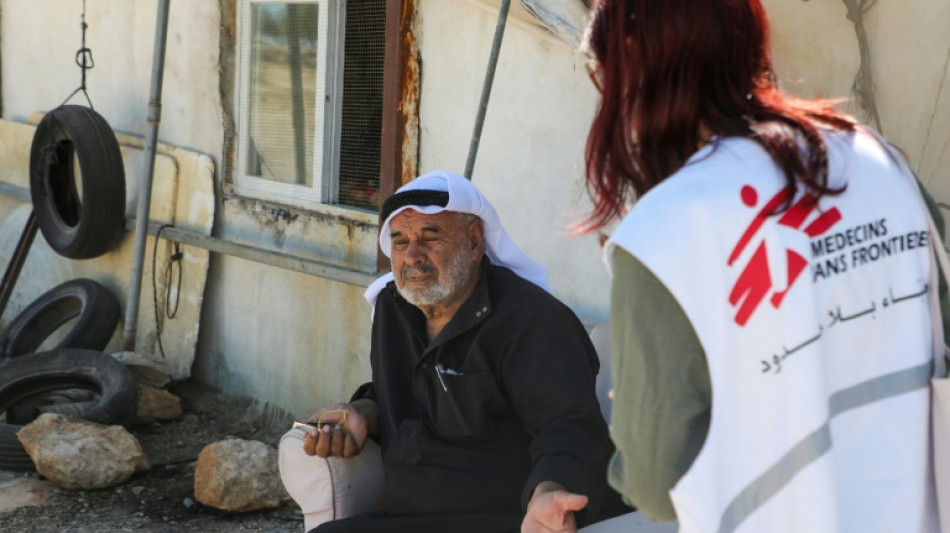
-
 Prince William plays football, volleyball in Rio on climate trip
Prince William plays football, volleyball in Rio on climate trip
-
Jamaicans mobilize aid in aftermath of Melissa's wreckage
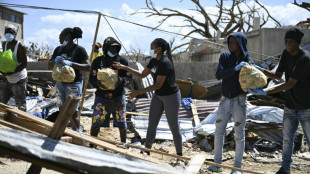
-
 Starbucks cedes China control to Boyu Capital
Starbucks cedes China control to Boyu Capital
-
'Wild at Heart' actress Diane Ladd dies at 89
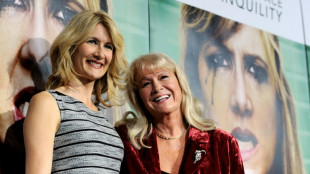
-
 Xhaka lifts Sunderland into fourth after Everton draw
Xhaka lifts Sunderland into fourth after Everton draw
-
Brazil records biggest annual fall in emissions in 15 years: report
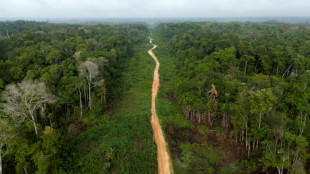
-
 Victor Conte, mastermind of BALCO doping scandal, dead at 75: company
Victor Conte, mastermind of BALCO doping scandal, dead at 75: company
-
Trial opens in 1st US civil case on 2019 Boeing MAX crash
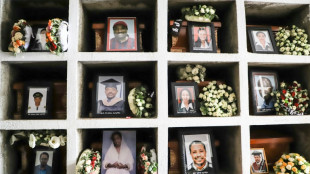
-
 Barrett brothers out of All Blacks' clash with Scotland
Barrett brothers out of All Blacks' clash with Scotland
-
Medieval tower partially collapses in Rome, trapping worker
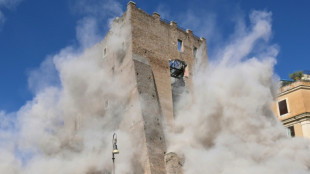
-
 Arsenal's Arteta says injured Gyokeres out of Slavia Prague tie
Arsenal's Arteta says injured Gyokeres out of Slavia Prague tie
-
Alonso says 'quality' Wirtz helped get him Real Madrid job

-
 US Fed's Cook warns inflation to stay 'elevated' next year
US Fed's Cook warns inflation to stay 'elevated' next year
-
Blue heaven: huge crowds salute Los Angeles Dodgers in victory parade

-
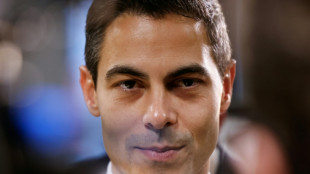 Dutch centrist Jetten clinches election win: final tally
Dutch centrist Jetten clinches election win: final tally
-
Mamdani extends olive branch to anxious NY business community

-
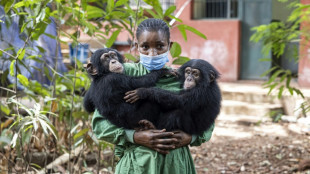 Sierra Leone chimpanzee sanctuary reopens after deforestation protest
Sierra Leone chimpanzee sanctuary reopens after deforestation protest
-
Shein bans sex dolls after France outrage over 'childlike' ones

-
 England full-back Steward doubtful for Autumn rugby clash with Fiji
England full-back Steward doubtful for Autumn rugby clash with Fiji
-
Bayern know how to 'hurt' PSG, says Neuer

-
 Rybakina downs Swiatek to reach WTA Finals last four
Rybakina downs Swiatek to reach WTA Finals last four
-
Ex-France international Ben Yedder to stand trial on rape charges

-
 Djokovic confirmed for ATP Finals, says Italian federation boss
Djokovic confirmed for ATP Finals, says Italian federation boss
-
Trent should be remembered for 'great' Liverpool moments, says Slot

-
 Stock markets diverge despite boost from AI deals
Stock markets diverge despite boost from AI deals
-
Prince William awed by Rio on climate-focused trip to Brazil
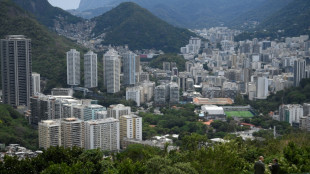
-
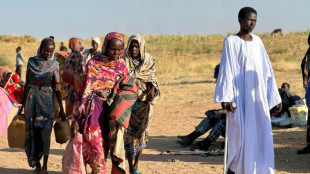 Violence in Sudan's El-Fasher could be war crimes, says top court
Violence in Sudan's El-Fasher could be war crimes, says top court
-
Rybakina downs Swiatek in WTA Finals

-
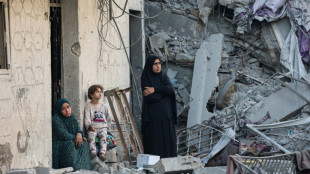 Turkey, Muslim allies say Palestinian self-rule key to Gaza future
Turkey, Muslim allies say Palestinian self-rule key to Gaza future
-
Tens of thousands shelter as typhoon slams into Philippines
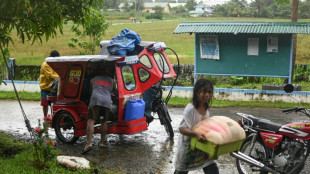
-
 Stock markets rise as tech sector buoyed by fresh AI deal
Stock markets rise as tech sector buoyed by fresh AI deal
-
Vitinha says PSG-Bayern Champions League clash will show who's 'best'

-
 Arsenal: The unstoppable Premier League force?
Arsenal: The unstoppable Premier League force?
-
Denmark inaugurates rare low-carbon hydrogen plant

-
 Springboks back Ntlabakanye call-up despite doping probe
Springboks back Ntlabakanye call-up despite doping probe
-
German plans to lower industrial power costs from January

-
 Christian, Muslim Nigerians push back on threatened US strikes
Christian, Muslim Nigerians push back on threatened US strikes
-
Nigeria's Rivers United paired with African champions Pyramids

-
 India women cricketers hail new era but challenges remain
India women cricketers hail new era but challenges remain
-
'Heroic' worker praised as man charged over UK train stabbings
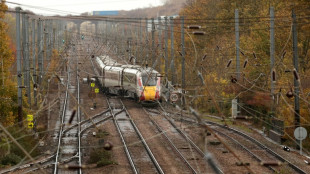
-
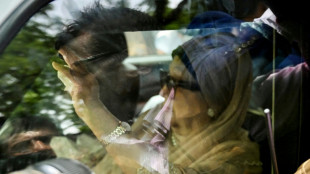 Bangladesh ex-PM Zia to contest elections: party
Bangladesh ex-PM Zia to contest elections: party
-
Tanzania president sworn in as opposition says hundreds killed in protests

-
 India announces $5.75 million reward for women cricket World Cup winners
India announces $5.75 million reward for women cricket World Cup winners
-
Spain regional leader resigns, a year after deadly floods

-
 Video game creators fear AI could grab the controller
Video game creators fear AI could grab the controller
-
France threatens Shein ban if 'childlike' sex dolls reappear

-
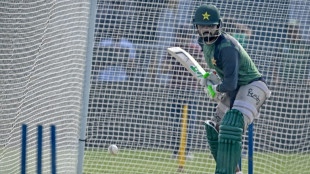 International cricket returns to Faisalabad with Pakistan-South Africa ODIs
International cricket returns to Faisalabad with Pakistan-South Africa ODIs
-
Afghan govt says quake kills 20, injures over 500
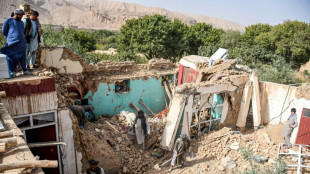
-
 'We're all too rich,' says photo legend Martin Parr
'We're all too rich,' says photo legend Martin Parr
-
Tanzania president inaugurated as opposition says hundreds dead
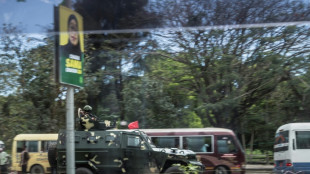
| RBGPF | -3.95% | 76 | $ | |
| SCS | -0.76% | 15.84 | $ | |
| AZN | -0.83% | 81.72 | $ | |
| NGG | -0.68% | 74.74 | $ | |
| RYCEF | 1.37% | 15.36 | $ | |
| BTI | 2.38% | 52.44 | $ | |
| BCC | -3.15% | 68.34 | $ | |
| RELX | -0.16% | 44.17 | $ | |
| CMSC | -0.34% | 23.67 | $ | |
| GSK | -1.1% | 46.35 | $ | |
| RIO | -1.95% | 70.37 | $ | |
| BCE | -0.84% | 22.67 | $ | |
| JRI | -0.14% | 13.88 | $ | |
| BP | -0.75% | 34.87 | $ | |
| CMSD | -0.38% | 23.9 | $ | |
| VOD | -5.89% | 11.38 | $ |

West Bank village lives in constant fear of Israeli settler raids
The stress shows on the face of Samiha Ismail who since October 7 has been stuck in her home in an occupied West Bank village that lives in constant fear of attack by Israeli settlers.
The day after the Hamas raid into southern Israel, settlers entered Susya, a hilltop village in the south of the West Bank, vowing retribution and "humiliation", the 53-year-old Palestinian recalled.
More than nine months on, Ismail is among 450 inhabitants who spend most of the day indoors. Even their sheep are not allowed out of their sheds.
"Every time we take them to pasture, the settlers chase us," the panicked Ismail told AFP.
Instead, the sheep of Israeli settlers now dot the nearby hills.
Susya's inhabitants say their livelihood has gone. One international aid group has sent counsellors to help Susya residents with their mental health.
"Before the war, we would have defended our land, but today nobody moves," she said.
The settlers are armed and protected by the army, she added, and her husband and son have been "beaten up" several times.
Israeli authorities did not respond to AFP's questions about violence in the region.
- Land grab -
Since the start of the Gaza war, Israeli settlement of the occupied West Bank -- considered illegal under international law -- has hit new records.
Excluding annexed east Jerusalem, some 490,000 Israeli settlers live in the West Bank alongside some three million Palestinians.
In June, the Israeli government declared more than 12 square kilometres (4.5 square miles) of the West Bank to be state land, the largest land appropriation since the 1993 Oslo Accords set out the foundations for land use in the territory.
Land that is declared as Israeli state property can be used for more settlements.
In addition, 25 settlement outposts -- not even authorised by Israel -- have sprung up across the West Bank since the start of the year, according to Peace Now, a settlement watchdog.
Men in military fatigues have meanwhile raided Susya at night, kicking down doors and looting property including donkeys and mules, locals told AFP.
Some have even entered houses at night to intimidate residents.
"Most of us no longer sleep at night," Ismail said.
Mohamed al-Nawajaa, 78, was born before the expulsion of hundreds of thousands of Palestinians when Israel was created in 1948 -- known as the Nakba, or catastrophe, to Palestinians.
"After October 7, they took all these hills. We were kicked out in 1948, 1967... and now again in 2024. But this land is ours," the shepherd said, his head wrapped in a traditional keffiyeh scarf.
- 'Gun to the head'
The October 7 attack that sparked war in Gaza resulted in the deaths of 1,195 people, mostly civilians, according to an AFP tally based on Israeli figures.
Militants also seized 251 hostages, 116 of whom are still in Gaza, including 44 confirmed dead.
Israel's retaliatory campaign has killed at least 39,006 people in Gaza, also mostly civilians, according to data from the health ministry in the Hamas-ruled territory.
Since the war erupted, violence has soared in the West Bank, with at least 579 Palestinians killed in violence with settlers or Israeli troops, according to the Palestinian authorities.
At least 16 Israelis, including soldiers, have been killed in attacks involving Palestinians, according to official Israeli figures.
Nawajaa said his biggest concern is his grandchildren. He does not let them leave the house.
He said the settlers had struck him and left him lying on the floor of his house. Others in the village have had similar experiences.
"They come at night, around 3:00 am. They say 'this house is mine'," he told AFP.
The harassment has frayed nerves in Susya. The Doctors Without Borders (MSF) charity set up tent clinics this year due to concerns for the villagers' mental health.
"There is no doubt that this is the biggest problem here," Simona Onidi, an MSF coordinator, told AFP. "We can't talk about post-traumatic disorder here. It's never post, it's a permanent trauma."
Abdul Rahim al-Nawajaa is despondent for the future. "The suffering is endless", said the 60-year old Bedouin as he pruned his acacia tree, the only one left standing since his olive trees were "vandalised".
Settlers killed his father a few years ago in a dispute over a sheep, and have demolished Abdul's house "several times".
"The settlers act in total impunity. A soldier might put a gun to your head and you can't do anything," the shepherd said.
Fears of a new forced exodus stalk Susya. But Mohamed al-Nawajaa defiantly declared: "We will stay in our houses".
Pointing to the ground, he added: "We will live on our land and we will die here."
R.Braegger--VB




